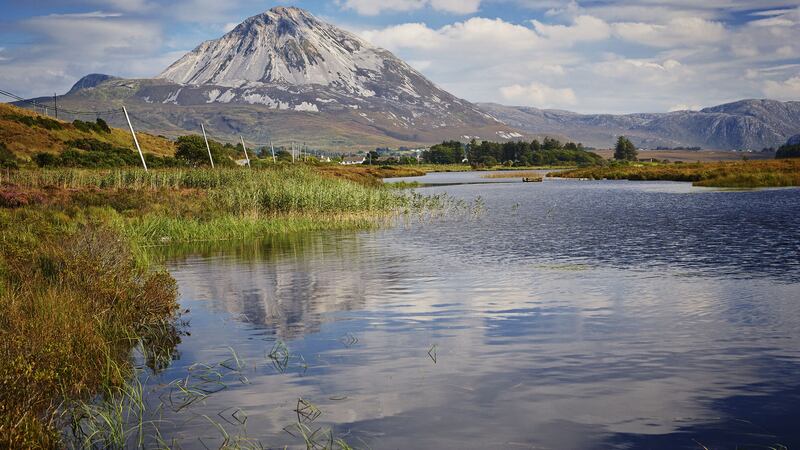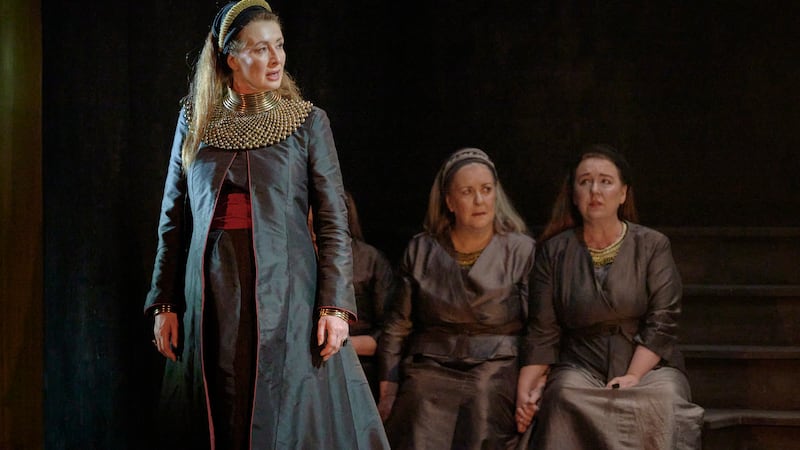Go mbeannaí Dia daoibh agus bhur gcéad míle fáilte isteach chuig the Bluffer’s Guide to Irish.
Well, the Bluffer has been treating you with kid gloves recently but it’s time now to get down and dirty with some Irish grammar and the exceptionally useful briathra neamhrialta - irregular verbs.
Most verbs are formed in regular patterns in all languages but there are some pesky one which don’t follow the rules, these are the irregular verbs.
There are 11 of them and we’ll start with the verb to go.
At school, the Bluffer learned things by rote, constant repetition and it worked.
So let’s try the present tense. If you learn téim - I go, ní théim - I don’t go and an/go/nach dtéim, it’ll be a great start.
However, that is just I go, for all the other persons, the verb changes to téann, ní théann and an dtéann after which you add tú/sé/sí/muid/sibh or siad.
So téann sé chuig Tesco gach lá - he goes to Tesco every day; ní théann sí ar scoil - she doesn’t go to school; an dtéann tú chuig ranganna Gaeilge? - Do you go to Irish classes? Téimchuig Cumann Chluain Ard - I go to Cumann Chluain Ard or whatever classes you might be going to.
“What does the an/go/nach bit mean, Bluffer,” I hear you ask.
Well, an is obviously asking a question; you use go when reporting what someone has said or after words like sílim - I think, creidim - I believe and so on.
So let’s see that with the past tense.
Chuaigh is went so chuaigh mé, chuaigh tú etc.
Chuaigh siad go Doire - they went to Derry and so on.
Now it gets weird! Chuaigh changes to ní dheachaidh mé in the negative so ní dheachaigh muid amach - means we didn’t go out.
Then when asking a question it changes again to an/go nach ndeachaigh mé, etc.
So sílim go ndeachaigh sé isteach - I think he went in.
So keep repeating in your head chuaigh mé, ní dheachaigh mé and an/go/nach ndeachaigh mé over and over again until it becomes second nature.
Now if the past tense was a wee bit weird, then the future tense is wee buns.
It’s rachaidh mé, ní rachaidh mé, an/go/nach rachaidh mé. Simples.
Now rachaidh muid amach - could either be we will go out or if you say it with a different intonation as if you were a cast member of Neighbours, it could mean you’re asking someone if they fancy going out.
So have a go at rachaidh mé, ní rachaidh mé, an rachaidh mé.
And that is your first irregular verb. Almost.
To tell someone to go somewhere, just say gabh - go but if you are talking to more than one person that becomes gabhaigí.
Gabhaigí ar dheis - go to the right and so on.
Finally ag dul is going. Now that is irregular!
You’ve probably noticed that there are a trillion ways of saying to in Irish but just learn the phrases above and built on them. There are websites that will help you if you just google “irregular verbs and Irish”
Learning by rote like we did the times tables is old-fashioned but it can be very effective.
CÚPLA FOCAL
briathra neamhrialta(breeahra nyaoreealta) - irregular verbs.
téim(chayim) - I go
ní théim (nee hayim) - I don’t go
an/go/nach dtéim(un/gaw/nakh) - do I/that I/don’t I go
téann sé chuig Tesco gach lá (chayan shay hig Tesco gakh laa) - he goes to Tesco every day
ní théann sí ar scoil(nee hayan shee ar skull) - she doesn’t go to school
an dtéann tú chuig ranganna Gaeilge?(un jayan too hig raangana gaylicka) - Do you go to Irish classes?
téimchuig Cumann Chluain Ard(chayim hig cuman khlooan ard) - I go to Cumann Chluain Ard
sílim(sheelim) - I think
creidim(crejim) - I believe
chuaigh siad go Doire (khooee shade gaw dirra) - they went to Derry
ní dheachaigh muid amach (nee hahee midge amakh) - we didn’t go out
sílim go ndeachaigh sé isteach(sheelim gaw nyahee shay istyakh) - I think he went in
rachaidh muid amach(rahee midge amakh) - we will go out?
gabh(go) - go
gabhaigí ar dheis (go-iegee) - go to the right
ag dul(eg gul) - going


